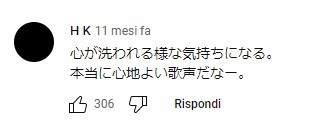How to use ように, ような, and ようだ in Japanese Grammar
Sandro Maglione
Get in touch with meIf you're studying Japanese, you've likely come across the grammar ように, ような, and ようだ.
While these expressions may seem confusing at first, they are actually quite versatile and commonly used in everyday Japanese.
In this guide, we'll explore the different meanings and uses of ように, ような, and ようだ, and provide plenty of examples to help you master this essential grammar.
Whether you're a beginner or an advanced learner, understanding よう will help you express yourself more clearly and fluently in Japanese.
Meaning of ように, ような, and ようだ
The expression ように (youni) is very versatile and takes on various meanings in different expressions, including seems, similar to, just like, for the purpose of.
Some of the expressions in which ように appears are:
- のように
- ようになる
- ようにする
- 思うように
- いつものように
Each of these expressions modify and expand the meaning of ように in various situations.

0:00.00
-1:0-1.00
今朝変な夢を見たからそのせいかもな、いつものようにすぐ治まるさ。
It is probably because this morning I had a strange dream, it will get better soon as usual.
How to conjugate ように, ような, ようだ
In its basic form ように means looks like or similar to.
This expression is formed by adding ように after any verb, adjective, or adverb. ように becomes ような when following a noun:
This usage of ように modifies the verb to indicate an action done just like.... Let's see some examples of conjugations of ように and ような:
Comment on a Music Video:

心が洗われるような気持ちになる。本当に心地良い歌声だな。
It makes me feel like my heart is being cleansed. It's such a soothing voice.
10代に戻ったように楽しかった。
It was fun just like being a teenager again.
想像できないようなアイディア。
Ideas like you can't imagine.
よう can be found in its kanji form 様, which is used in formal contexts.
Indicating similarity with ように
As we have seen above, when ように follows any term it adds the meaning of similar to, just like, in the manner of.
ように specifies something that has been done or exists in a particular way.
窓を開けたように風が入ってきた。
The wind came in as if I had opened the window.
彼女は泣いたように目が赤かった。
Her eyes were red as if she had been crying.
In these examples, ように is used to indicate that the subsequent noun or verb phrase is being described in a way that is similar to a past action or state.
It implies that the speaker is not completely sure if the past action or state actually occurred, but is making a comparison based on their observations or assumptions.
ように to express a purpose
Another use of ように is to specify a purpose or objective.
In this sense ように is similar to ために:
- ために is used with verbs that express one's will to perform an action (volitional form)
- ように instead does not require the verb in the volitional form
Thus ように is used to express an action done for a specific purpose, and translates as for the purpose of, so as:
- What precedes ように is the goal to achieve
(A) - What follows ように is the action performed to achieve that goal
(B)
Let's look at an example sentence:
遅刻しないように早く起きよう。
In order to not be late I will get up early.
- The purpose is in this sentence is
not being late, expressed by 遅刻しない, which precedes ように - To achieve this purpose
I will get up early, 早く起きよう, which follows ように
This structure can also be used when the agent in the (A) and (B) parts of the sentence are different.
In these cases the agent in (A) performs an action or an effort in order to teach, push, motivate the agent in (B) to achieve a certain goal.
Here is also an example to understand this meaning of ように:
文法が分かるように、先生は絵を使った。
In order to explain the grammar, the teacher used images.
The structure of the sentence does not change from the previous example. However, note how in this case the agent is the teacher (先生) who performs an action in order to push the students (second agent) to understand the grammar (文法が分かる).
What is the difference between ように and ために?
While both ように and ために express purpose:
- ように emphasizes the manner or way of achieving the goal
- ために emphasizes the reason or purpose for doing something
日本語を話せるように勉強しています。
I'm studying in order to be able to speak Japanese.
In this example it is better to use ように instead of ために because ように emphasizes the way or manner in which something is done to achieve a desired result.
The use of ように implies that the speaker is not only studying for the sake of studying or for the goal of speaking Japanese, but that they are actively studying in a way that will help them achieve their desired result.
ように puts emphasis on the process of studying itself, rather than just the end goal.
On the other hand, using ために would simply state the reason or purpose for studying. While this is still a correct way to express the purpose, it does not convey the same emphasis on the process of studying in a way that will lead to the desired result.
In summary, using ように in this context adds an additional layer of meaning that emphasizes the manner or way in which something is done to achieve a desired result, making it a more effective way to express the purpose of studying.
日本語を話すために日本に来ました。
I came to Japan in order to speak Japanese.
In this example instead it is better to use ために instead of ように because ために emphasizes the reason or purpose for doing something in order to achieve a desired result.
The use of ために implies that the speaker's primary reason for coming to Japan was to achieve the goal of speaking Japanese.
ために puts emphasis on the end goal, rather than on the process of achieving it.
On the other hand, using ように in this context would imply that the speaker came to Japan in a certain manner or way in order to speak Japanese. This would not make as much sense, as coming to Japan in a particular way does not really affect one's ability to speak Japanese.
In summary, using ために in this context adds an additional layer of meaning that emphasizes the reason or purpose for coming to Japan, making it a more effective way to express the purpose of the speaker's trip.
ように for commands and directions
When ように is used towards another person it acts as a command or instruction to tell the way in which a certain action must be performed in order to achieve a certain goal.
The form of the sentence, also in this case, is similar to what we saw previously. In these cases ように can be translated as so that, in a way that:
壊さないように運んでください。
Transport it so it doesn't break.
From the example we see how we are asked to carry something (運んでください) but making sure not to break it (壊さない).
In these cases ように can also be used as a form of command, do something as required or requested.
ように at the end of the sentence: hopes and prayers
When ように is found at the end of the sentence it takes the meaning of wish, hope, or even prayer to make something happen (goal).
When ように indicates a prayer it is often preceded by the polite form in ます.
Let's also see an example here:
素敵な一年になりますように。
We hope this is a wonderful year.
This expression is often found together with verbs like 祈っています (to pray) and 願っています (to wish).
のように
ように can be preceded by the particle の when following a noun, forming the expression のように:
The expression のように is used to modify the noun that precedes it to add the meaning of similar to, like a.
Let's see a simple example:
夢のような生活。
A life like a dream.
In this example the noun dream (夢) is applied to life (生活) to indicate a life like a dream.
君のような女の人はいない。
There is no woman like you.
彼女は氷のように冷たい。
She is cold as ice.
Example sentences with ように

0:00.00
-1:0-1.00
なんか夢を見ていたような。
It seems like I had some kind of dream.
The use of ような implies a sense of uncertainty or vagueness about the experience, as if the speaker is not completely sure if they were actually dreaming or not.
子供が健やかに育つように、心から祈っています。
I am praying from the bottom of my heart that your children will grow up healthy.
この人はやくざのように見える。
That person looks like a gangster.
明日のテストで合格できますように。
I hope to pass tomorrow's test.
先生はみんなに分かるように言った。
The teacher said it to make everyone understand.
Similar grammar points in Japanese 📚
~ていく
~ていく (teiku) Meaning Japanese Grammar - Keep Doing
てよかった
てよかった (te yokatta) Meaning Japanese Grammar - I'm Glad That...
それでもいい
それでもいい (soredemoii) Meaning Japanese Grammar - It's Fine
それでも
それでも (sore demo) Meaning Japanese Grammar - Still
させられる・せられる
させられる・せられる (saserareru serareru) Meaning Japanese Grammar - To Be Made To Do Something
ないで
ないで (naide) Meaning Japanese Grammar - Without Doing